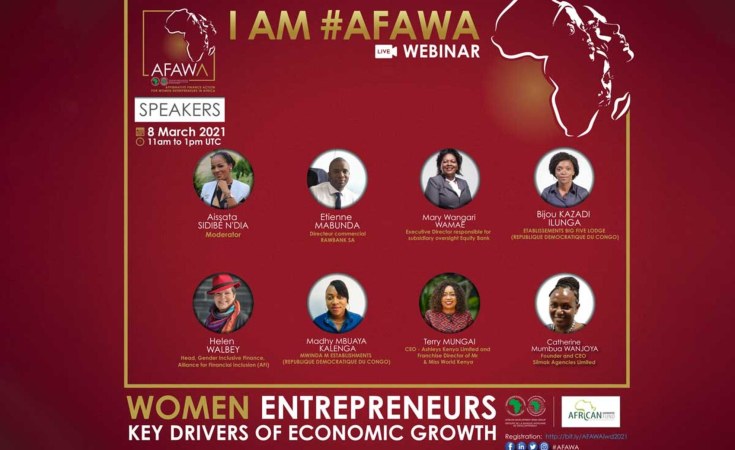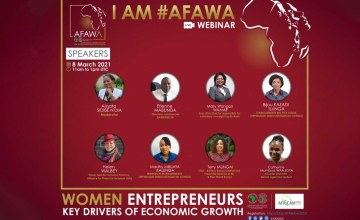Faith Keza is a happy entrepreneur. CEO at RwandaOnline platform limited, Kigali, Rwanda. She is Rwandan. She went to the Massachusetts Institute of Technology to study electrical engineering and computer science but the goal was always to come back and be part of the Rwandan story... This dream came true thanks to the support provided by the Bank to Kigali's Carnegie Mellon University where she teaches.
Faith's story is a perfect illustration of how concrete and palpable the Bank's projects can be when it comes to supporting women.
It also shows the multiplying effect of our projects, which are designed to create synergies and opportunities.
The following videos are about the concrete impact of our projects, how they are transforming women's lives, telling the stories of women who were able to take their destiny into their own hands.
Women are the backbone of the African economies and powerful drivers of recovery as the world strives to build back better economies and societies in a post-COVID era.
Over the years, the African Development Bank has undertaken different actions to promote and invest in women empowerment and gender equality to accelerate the growth of the continent while ensuring wider access to economic opportunities for all, across age groups, genders and geographic divides.
Progressively, gender dimensions have been taken into consideration in all the Bank's operations to support the efforts of African countries to attain gender equality and empowering women in all sectors.
The Bank Group is also very active in developing gender knowledge products to inform and support policy dialogue with governments. Recently, the Bank, jointly with the United Nations Economic Commission for Africa, produced the Africa Gender Index (AGI), an important milestone for the gender agenda at the continental level. The report, which is a first of its kind, presents the state of gender equality across African countries, building on both institutions' comparative advantages. It produces a comprehensive index with reliable data and statistics as well as vital recommendations for policy measures and investments that can change the status quo and generate gains for all Africans by focusing on three core dimensions on gender equality and women empowerment: economic, social, and representation and empowerment.
Targeted actions are also necessary to impact women and girls at scale. The Bank Group invests in special initiatives to support gender equality and women empowerment, specifically access to finance through the Affirmative Finance Action for Women in Africa (AFAWA) programme, a Bank-led initiative created to reduce the estimated USD 42 billion access to finance gap for women SMEs on the continent and unleash women's entrepreneurial capacity.
Through AFAWA, the Bank expects to unlock USD 5 billion of financing to women entrepreneurs in the next 5 to 6 years. With the support of the G7, USD 3 billion will be unlocked for women entrepreneurs through an innovative guarantee mechanism to de-risk the women SME segment and further incentivize financial institutions to lend to women entrepreneurs.
Improve the Quality of Life for the People of Africa
Faith Keza, CEO at RwandaOnline platform limited, Kigali, Rwanda.
Industrialize Africa
Maroua Khemiri, head of the Manufacturing Execution System, EleOneTech, Bizerte, Tunisia .
Henriette Bamanisa, elementary school teacher in Congo.
Light up and Power Africa
Ana Monteiro, Head of Environmental, Social and Administration, Cabeolica, Cabo Verde.
Zaccaron Rahamatou, electrical engineer, CIPREL, Côte d'Ivoire.
Integrate Africa
Teresia Kanina, vegetable vendor, Marsabit, Kenya.
Ivy Ampah, an air traffic controller at the Kotoka International Airport, Ghana.
Feed Africa
Virginie Gorette, Wholesale Fish Collector, Toliara, Madagascar.



